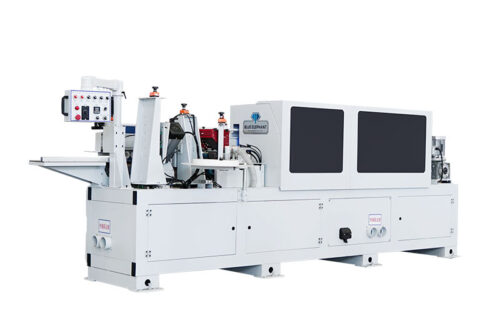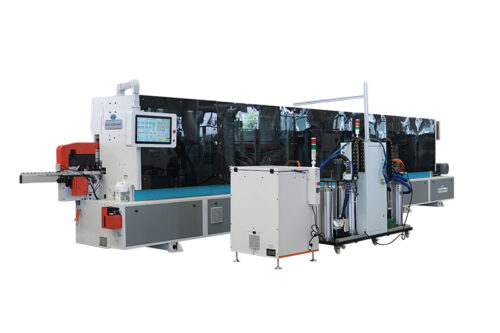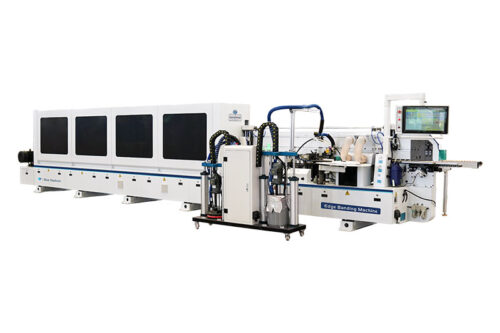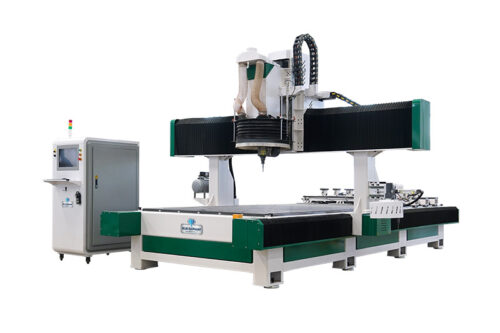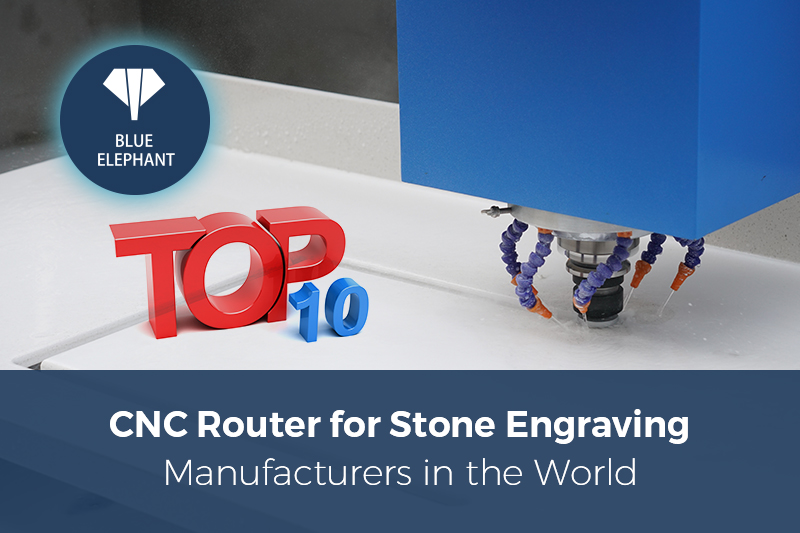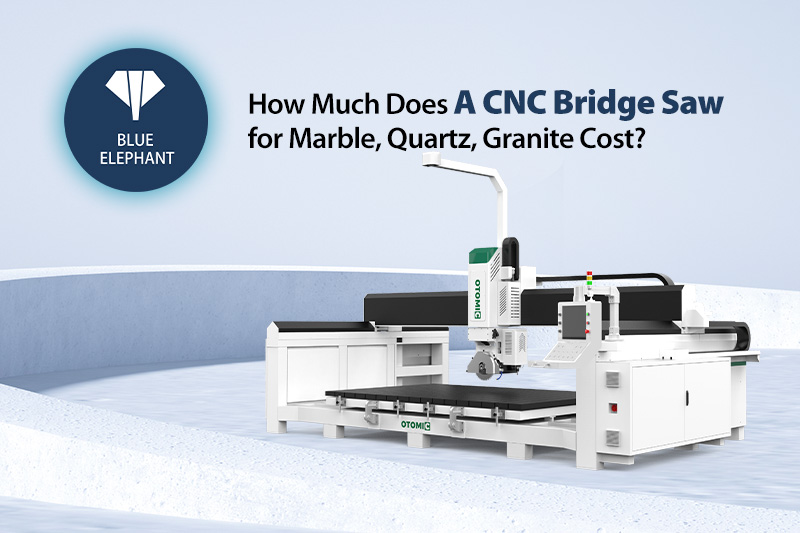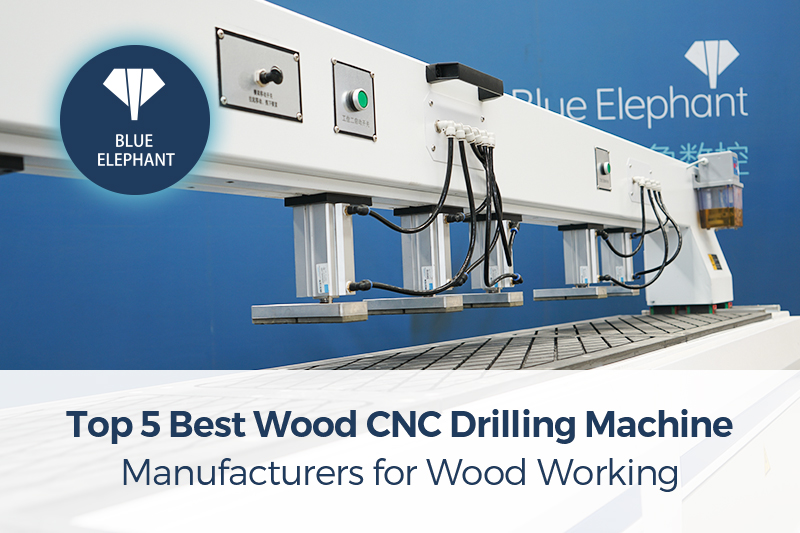I remember the first time I stood in my tiny garage, staring at a used CNC machine I had just bought. I had no formal training, no business background—just a love for machining and a dream of building something bigger.
It wasn’t easy. Mistakes? Plenty. Late nights? Too many to count. But over time, I learned the hard way what it really takes to start and grow a CNC machine shop.
If you’re here, you probably have the same dream. Maybe you’re tired of working for someone else. Maybe you love machining and want to turn it into a business. I’ve been there, and I know how overwhelming it can feel.
This guide will walk you through every step—choosing the right machines, finding customers, managing costs, and avoiding beginner mistakes. You’ll get real advice from someone who started from scratch, made the mistakes, and built a profitable CNC shop.
By the end, you’ll have a real plan for starting your shop and making it work.
So let’s start!
Now that you have an overview, let’s break down each step and start building your CNC shop in detailed steps.
Step#1 Understanding the CNC Machine Shop Business
Starting a CNC machine shop requires more than just machining skills. You need to understand market demand, define your services, and prepare for challenges. Follow these steps to build a strong foundation for your business.
Study Market Demand And Industry Trends
Before setting up your shop, research the market to understand where your business will fit.
- Identify Key Industries: Research which industries in your area rely on CNC machining, such as aerospace, automotive, or medical manufacturing.
- Analyze Customer Needs: Find out whether local businesses need prototypes, small-batch production, or large-scale manufacturing.
- Evaluate Competition: Study established CNC shops. Look at their services, pricing, and customer base to identify gaps you can fill.
- Monitor Industry Trends: Stay updated on new technologies like AI-driven machining, automation, and advanced materials. These trends can affect demand and profitability.
- Define Your Niche: Choose whether to specialize in high-precision machining, rapid prototyping, or a specific industry sector.
When I started, I assumed taking any job was the best strategy. In reality, focusing on high-precision aerospace parts helped me secure long-term contracts and steady revenue.
Define Your CNC Shop’s Key Services And Capabilities
Your shop’s success depends on offering the right services. Plan what you’ll provide based on your skills, equipment, and customer demand.
- Assess Your Equipment: List what machines you have and what they can produce. Make sure they match your target services.
- Choose Core Services: Decide whether you’ll offer milling, turning, grinding, EDM machining, or all of them.
- Plan For Future Expansion: Identify services you want to add later, such as laser cutting or waterjet cutting.
- Determine Your Production Capacity: Define whether you’ll focus on prototypes, small-batch production, or mass manufacturing.
- Set Quality Standards: Research industry certifications that may be required for aerospace, medical, or defense industries.
Write down the services you can provide immediately and those you plan to offer as your shop grows.
My shop started with just milling and turning. As demand grew, I invested in EDM machining, which helped me attract clients needing complex parts.
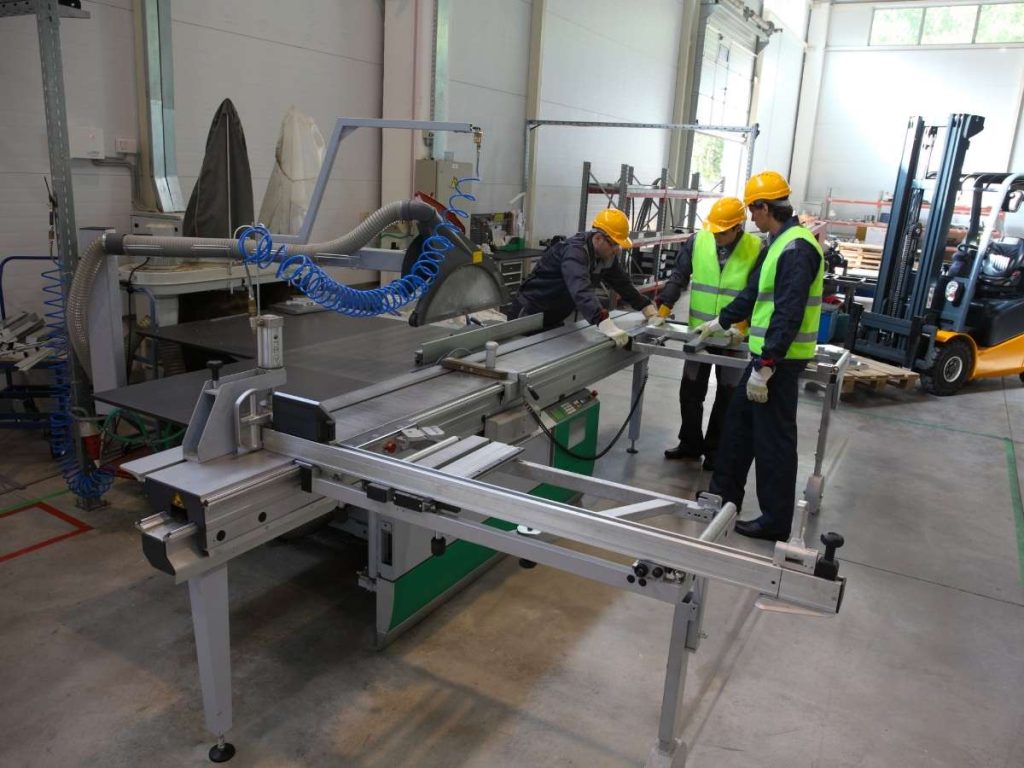
Step#2 Business Planning: Setting the Foundation
Now that you understand the CNC machining industry and your potential niche, it’s time to lay the groundwork for your business. A solid business plan helps you avoid costly mistakes, attract customers, and position your shop for long-term success.
How will your shop make money? What legal steps do you need to take? How do you stay ahead of competitors? Let’s break it down step by step.
Define Your Business Model And Niche
Before you buy equipment or take on jobs, you need a clear business model. What kind of CNC shop will you run? Who are your ideal clients?
- Choose Your Business Type: Decide if you’ll be a job shop (taking custom orders) or a production shop (mass-producing specific parts).
- Identify Your Core Customers: Will you serve manufacturers, engineers, or repair companies? Understanding your target clients helps with pricing and marketing.
- Select Your Specialization: High-precision aerospace parts, automotive components, and custom prototyping all require different approaches. Find a niche that fits your expertise and local demand.
- Determine Your Pricing Model: Will you charge per part, per hour, or offer bulk discounts? Pricing affects profitability, so research industry rates.
Early on, I tried taking every job that came my way. It spread my resources thin and made pricing difficult. When I focused on high-precision machining for medical devices, I gained steady clients who valued quality over cost.
Handle Legal Requirements And Licensing
Every CNC machine shop must meet legal and regulatory requirements. Getting this right from the start prevents legal trouble and protects your business.
- Register Your Business: Choose a legal structure (LLC, sole proprietorship, or corporation) based on liability protection and tax benefits.
- Obtain Business Licenses: Check state and local requirements for manufacturing businesses, including zoning permits.
- Apply For Industry Certifications: Depending on your niche, you may need ISO 9001 for quality management or AS9100 for aerospace machining.
- Secure Liability Insurance: CNC machining involves expensive equipment and high-precision work. Protect your business from unexpected claims.
- Set Up Tax And Accounting Systems: Work with an accountant to handle bookkeeping, sales tax, and financial planning.
Action Step: Contact your local business authority or Small Business Administration (SBA) to confirm the exact permits and licenses needed in your area.
I overlooked insurance when I started. When a client rejected a batch of parts due to a minor tolerance issue, I had to cover the cost. A solid liability policy would have saved me thousands.
Develop A Competitive Business Strategy
The CNC machining industry is competitive. Without a strategy, you risk losing work to larger, more established shops. How do you stand out?
- Analyze Your Competitors: Research local CNC shops. What services do they offer? What are their strengths and weaknesses?
- Find Your Unique Selling Point: Fast turnaround, tighter tolerances, or specialized materials can set you apart.
- Build A Strong Brand Identity: A professional website, quality social media presence, and clear messaging help attract customers.
- Create A Customer Acquisition Plan: Will you rely on word-of-mouth, online job platforms, or direct outreach to manufacturers? Develop a plan for finding and keeping clients.
- Plan For Growth: Will you start small and expand later? Outline how you’ll scale your shop, add new machines, and increase production capacity.
My biggest mistake was assuming work would come naturally. Once I started networking at trade shows and actively marketing my shop, I landed my first big contract.
Step#3 Choosing the Right CNC Machines and Tools
Now that you have a solid business plan, it’s time to equip your shop with the right machines and tools. Choosing the wrong equipment can lead to inefficiencies, high maintenance costs, and production bottlenecks. How do you select the best CNC machines for your needs? What tools and accessories will maximize precision and efficiency?
Let’s break it down step by step.
Factors To Consider When Selecting CNC Machines
Selecting the right CNC machines involves a thorough assessment of your production requirements, material types, and business objectives.
- Define Your Production Requirements: Identify the types of parts you intend to produce. Will your focus be on high-precision aerospace components, general machining tasks, or large-scale production runs?
- Select The Appropriate Machine Type:
- CNC Mills: Suitable for creating precision parts with intricate geometries, ideal for prototyping and custom machining.
- CNC Lathes: Designed for manufacturing cylindrical components such as shafts and bushings.
- CNC Routers: Best suited for working with wood, plastics, and soft metals.
- EDM Machines: Essential for making intricate cuts in hard metals.
- 5-Axis CNC Machines: Enable multi-angle cutting in a single setup, enhancing efficiency.
- Consider Machine Size And Work Envelope: Larger machines can handle bigger workpieces but require more floor space and higher power consumption.
- Assess Software Compatibility: Ensure that the machine’s control system is compatible with your preferred CAD/CAM software, such as Mastercam, Fusion 360, or SolidWorks.
- Analyze Costs And Return On Investment (ROI): New machines provide reliability but come with higher upfront costs. Used machines may be more affordable but could entail higher maintenance expenses. Calculate the ROI based on your projected production capacity and operational costs.
Initially, I purchased a used CNC mill to minimize costs. However, frequent breakdowns led to production delays. Upgrading to a new machine significantly improved our operational efficiency and reduced downtime.
Essential Tools And Accessories For CNC Machining
Equipping your CNC machines with the right tools and accessories is vital for achieving precision and efficiency.
- Cutting Tools: Choose appropriate end mills, drills, and inserts based on the materials you will be machining. Carbide tools typically offer greater durability and precision compared to high-speed steel alternatives.
- Workholding Solutions: Secure workpieces effectively using vises, chucks, and custom fixtures to minimize vibration and maintain accuracy.
- Coolant Systems: Implement proper lubrication methods to prevent overheating and extend tool life. Mist coolant is suitable for light machining, while flood coolant is preferable for heavy-duty cutting.
- Tool Holders And Collets: Ensure that tools are held securely to reduce runout and maintain machining accuracy. High-quality tool holders contribute to consistent performance.
- Measuring And Inspection Instruments: Maintain quality control with precision tools such as calipers, micrometers, dial indicators, and coordinate measuring machines (CMMs).
- Chip Management Systems: Utilize chip conveyors or vacuum systems to keep the workspace clean and reduce machine downtime caused by chip accumulation.
- Uninterruptible Power Supply (UPS): Protect your operations from power outages that could disrupt machining processes by investing in a reliable UPS.
Choosing the right CNC machines and tools is a critical step in building a successful shop. By selecting equipment from reputable sources like Blue Elephant, it will set your business up for long-term efficiency and profitability.
Step#4 Setting Up Your CNC Machine Shop
After selecting the right CNC machines and tools, the next step is setting up your shop for smooth operations. A well-planned location, strong infrastructure, and skilled team make all the difference between an efficient workflow and constant bottlenecks.
Where should you establish your shop? How do you design a layout that maximizes productivity? What steps should you take to hire skilled operators? Let’s go step by step.
Choosing The Right Location And Layout
Your shop’s location and layout affect everything from daily efficiency to long-term scalability. A poorly planned space can lead to production delays, while a strategic setup improves workflow.
- Assess Space Requirements: Consider the size of your CNC machines, workstations, and material storage. Plan for future growth to avoid relocating later.
- Verify Zoning And Compliance: Manufacturing businesses often have zoning restrictions. Check local laws before signing a lease or purchasing property.
- Prioritize Accessibility: Choose a location near industrial areas, suppliers, and transportation hubs to reduce logistics costs.
- Design An Efficient Workflow: Arrange machines, storage, and workbenches to minimize wasted movement. Raw material storage should be close to loading docks, while finished parts should be near the shipping area.
- Separate Work Areas: Keep machining, material handling, assembly, and quality control areas distinct. This reduces clutter and prevents bottlenecks.
- Install Proper Ventilation And Lighting: CNC machining produces heat and airborne particles. Good ventilation improves air quality, while bright LED lighting enhances visibility and safety.
Essential Infrastructure And Safety Measures
A CNC shop isn’t just about machines—it needs a strong infrastructure and safety protocols to operate efficiently.
- Set Up A Stable Power Supply: CNC machines require steady voltage. Make sure your facility has proper grounding and backup power solutions to prevent sudden shutdowns.
- Install Compressed Air And Coolant Systems: Many CNC machines need compressed air for tool changes and coolant systems to prevent overheating. Invest in a reliable setup.
- Implement Fire Safety Measures: Metalworking can generate sparks and heat. Keep fire extinguishers, emergency exits, and fire suppression systems in place.
- Provide Personal Protective Equipment (PPE): Machinists should wear safety goggles, gloves, steel-toe boots, and hearing protection to prevent injuries.
- Maintain A Clean Work Environment: Dust, oil, and metal chips can create hazards. Regular cleaning improves safety and keeps machines running smoothly.
- Train Employees On Machine Safety: Ensure every operator knows emergency stop functions, proper machine handling, and basic maintenance procedures.
- Secure Heavy Machinery: Machines should be properly anchored to prevent vibrations that could affect accuracy and cause safety issues.
Before installing machines, create a checklist of infrastructure and safety requirements to avoid unexpected setbacks.
I didn’t prioritize compressed air at first, which led to pressure drops and inconsistent machining. Upgrading my system solved these issues and improved efficiency.
Hiring Skilled CNC Operators And Technicians
Your machines are only as good as the people operating them. Skilled workers keep production smooth and minimize costly errors.
- Define The Roles You Need: Will you hire CNC operators, programmers, maintenance technicians, or quality control specialists? Outline job responsibilities clearly.
- Look For Experience And Certifications: Machinists with CAD/CAM knowledge, G-code programming skills, and CNC operation experience bring value from day one. Certifications like NIMS (National Institute for Metalworking Skills) are a plus.
- Use Multiple Hiring Channels: Post job listings on industry job boards, technical schools, and local trade associations to attract qualified candidates.
- Offer Competitive Pay And Training Opportunities: Skilled machinists are in demand. Competitive wages and career growth options help you attract and retain talent.
- Conduct Hands-On Interviews: Have candidates perform a machining task or program a CNC job to assess their skills.
- Invest In Ongoing Training: CNC technology is constantly evolving. Regular training helps your team stay updated on new software, machining techniques, and safety practices.
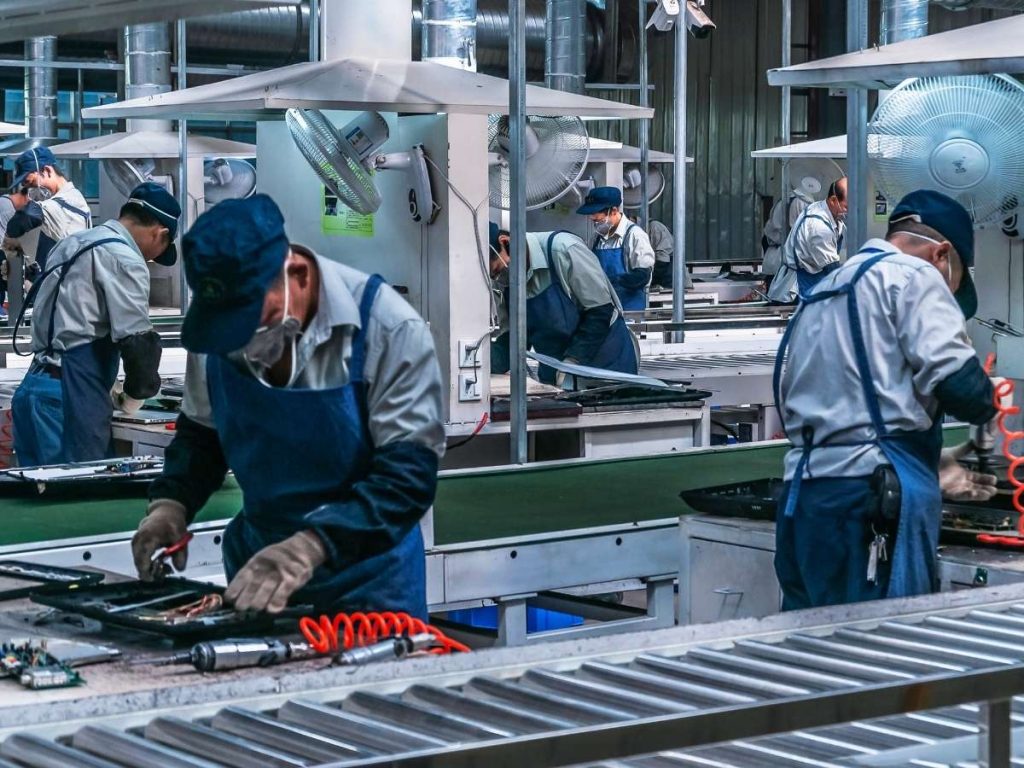
Step#5 Budgeting & Financial Planning
After setting up your CNC machine shop, the next challenge is managing finances. Without a solid financial plan, even the best-equipped shop can struggle to stay profitable.
How much does it really cost to start? Where can you secure funding? How do you keep cash flow steady? Let’s go step by step.
Estimating Startup Costs And Ongoing Expenses
Before launching your CNC shop, you need a clear breakdown of all costs. Miscalculating expenses can lead to financial strain early on.
- Machine And Equipment Costs: CNC machines, tooling, software, and workholding devices make up the bulk of startup costs.
- Facility Expenses: Rent, utilities, renovations, and infrastructure setup for power and compressed air.
- Labor Costs: Hiring machinists, programmers, and administrative staff requires upfront investment.
- Material And Supply Costs: Raw materials, cutting tools, coolant, and maintenance supplies add up quickly.
- Business Operations: Insurance, licensing, marketing, and accounting software keep the business running.
I underestimated ongoing expenses, especially tooling costs. Buying cheap tools led to frequent replacements. Investing in quality upfront saved money in the long run.
Securing Funding And Financial Resources
Starting a CNC shop requires capital, and most business owners need external funding. Where can you find financial support?
- Small Business Loans: Banks and credit unions offer loans, but they often require a strong business plan and collateral.
- Equipment Financing: Many CNC machine suppliers provide financing options with manageable monthly payments.
- Government Grants And Programs: Some industries offer grants for manufacturing startups, especially those focusing on innovation or local job creation.
- Investor Partnerships: Partnering with an investor can provide funding in exchange for a share of profits or equity.
- Business Lines Of Credit: A line of credit helps cover short-term expenses, giving you flexibility when cash flow is tight.
Research funding options that align with your shop’s needs and repayment capabilities before making big purchases.
Managing Cash Flow And Profitability
Many CNC shops fail due to poor cash flow management, not lack of work. A steady flow of cash ensures you can cover expenses and invest in growth.
- Negotiate Upfront Deposits: Large CNC projects require expensive materials. Asking for a 30–50% deposit reduces financial strain.
- Track Expenses And Revenue: Use accounting software to monitor income, material costs, and overhead. Unexpected expenses can erode profit margins.
- Avoid Overextending Credit: Taking on too many financed purchases at once can create heavy monthly payments, limiting financial flexibility.
- Diversify Income Streams: Offering prototyping, contract machining, and repair services helps maintain steady revenue.
- Plan For Slow Seasons: Manufacturing demand fluctuates. Having emergency funds or flexible payment terms helps keep operations stable.
Step#6 Building Your CNC Business Network
Running a CNC machine shop is more than just machining parts. Strong relationships with clients, vendors, and industry professionals can open doors to long-term contracts and better pricing on materials. Without a solid network, finding reliable work and keeping costs under control becomes a challenge.
How do you establish trust with customers? Where should you focus your marketing efforts? Let’s break it down step by step.
Establishing Relationships With Clients And Vendors
A CNC shop thrives on repeat business and reliable suppliers. Strengthening these relationships can lead to long-term success.
- Deliver Consistent Quality And On-Time Work: Clients stick with machine shops that meet deadlines and provide precise parts.
- Build Strong Vendor Relationships: Reliable suppliers mean steady material availability and better pricing. Long-term partnerships are more valuable than chasing the lowest cost.
- Engage With The Industry: Join manufacturing associations, attend networking events, and stay connected with other professionals.
- Prioritize Customer Communication: Set clear expectations, update clients on project timelines, and quickly address any issues.
- Be Flexible When Possible: Accommodating last-minute changes or rush jobs builds trust and increases repeat orders.
I learned early on that rushing to find the cheapest vendor led to inconsistent material quality. Partnering with a reliable supplier, even at a slightly higher cost, saved me time and avoided rejected parts.
Marketing And Branding For CNC Businesses
A well-equipped CNC shop means nothing if potential customers don’t know you exist. Marketing helps attract new clients and builds credibility in the industry.
- Develop A Strong Online Presence: A website showcasing your capabilities, industries served, and case studies makes it easier for potential clients to trust your shop.
- Leverage Online Job Platforms: Marketplaces like Xometry and Fictiv help CNC shops connect with businesses needing manufacturing services.
- Use Social Media And Industry Forums: LinkedIn and trade-specific forums allow direct engagement with manufacturers, engineers, and decision-makers.
- Optimize For Local And Online Search: Search engine optimization (SEO) helps your business show up when companies search for CNC machining services.
- Attend Trade Shows And Industry Events: Face-to-face interactions build credibility and provide networking opportunities with potential clients.
Pick two marketing strategies you can implement immediately, such as improving your website or setting up a LinkedIn company page.
Step#7 Operating & Managing Your CNC Shop Efficiently
Building a CNC shop is one thing—running it efficiently is another. Maintaining high-quality standards, meeting compliance regulations, and planning for growth are all essential for long-term success. Without proper management, even the best-equipped shop can face production delays, quality issues, and financial strain.
How do you maintain consistency in production? When is the right time to expand? Let’s go step by step.
Quality Control And Compliance Standards
A CNC machine shop must produce precise and reliable parts. Quality control and compliance ensure customer satisfaction and protect your business from costly rework.
- Implement A Quality Inspection Process: Use precision measuring tools like micrometers, calipers, and CMMs (Coordinate Measuring Machines) to check tolerances before shipping parts.
- Follow Industry Certifications: Standards like ISO 9001 (quality management) and AS9100 (aerospace manufacturing) improve credibility and open doors to high-value contracts.
- Maintain Detailed Documentation: Track material certifications, machine calibrations, and inspection records to meet industry and customer requirements.
- Train Employees On Quality Control: Operators should know how to measure parts correctly and identify defects before parts leave the shop.
- Use Process Improvement Strategies: Methods like Six Sigma and Lean Manufacturing help reduce waste, improve efficiency, and prevent defects.
In my first year, I had to redo a large batch of parts because I skipped final inspections. That mistake cost me time and money. Now, every part goes through multiple quality checks before leaving the shop.
Scaling And Expanding Your CNC Business
Once your shop is running efficiently, expansion may be the next step. Growth can mean adding more machines, hiring employees, or diversifying into new markets.
- Assess Your Current Capacity: Before expanding, analyze machine utilization, production bottlenecks, and customer demand.
- Invest In Automation: CNC automation, such as robotic loading systems, can increase output without adding labor costs.
- Expand Your Service Offerings: Consider adding new capabilities like EDM machining, laser cutting, or 5-axis milling to attract more clients.
- Strengthen Customer Relationships: Loyal customers provide repeat business and referrals. Offer volume discounts or faster turnaround for long-term clients.
- Secure Funding For Growth: Expanding requires capital. Equipment financing, business loans, or reinvesting profits can help scale operations strategically.
Operating a CNC shop efficiently requires more than just machining skills. Maintaining strict quality control, meeting compliance standards, and scaling your business at the right time will help your shop grow sustainably.
Conclusion
Every CNC shop owner starts somewhere. Some begin in a garage. Others lease their first space. The difference between those who succeed and those who fail? Action.
This guide gave you the blueprint—planning, setup, networking, and scaling. But knowledge alone won’t build your shop. You have to take the leap.
Need dependable CNC machine supplier?
At Blue Elephant, we offer comprehensive services including remote troubleshooting, on-site visits, and detailed user guides for seamless operations.
Contact us today! Let’s make your dream shop into reality.
Explore More of Our Resources
We’ve gathered a few more articles that could help you out. Check them out for more great advice:
Still haven’t found what you’re looking for? Don’t hesitate to contact us. We’re available around the clock to assist you.


